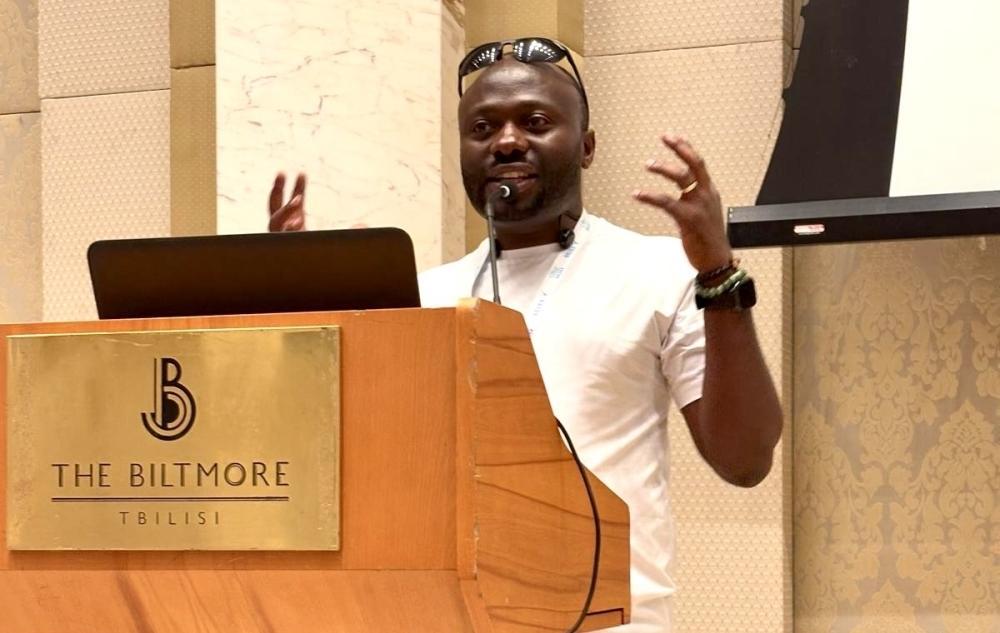Africa-Press – Rwanda. Resilience—the ability to recover after trauma – can be passed from mothers to daughters, helping protect both generations from Post-Traumatic Stress Disorder (PTSD), according to a new study by Rwandan psychotherapist and researcher Dr. Celestin Mutuyimana.
PTSD is a psychiatric condition that may occur in people who have experienced or witnessed a traumatic event or series of traumatic events.
Conducted with 309 mother-daughter pairs in Rwanda, the research shows how families transmit trauma and the strength to heal. Researchers used internationally recognized questionnaires to measure each participant’s exposure to traumatic events, resilience levels, and Post-Traumatic Stress Disorder symptoms.
Findings revealed that mothers with higher resilience had fewer Post-Traumatic Stress Disorder symptoms and were more likely to protect their daughters from PTSD. Daughters’ resilience also helped reduce Post-Traumatic Stress Disorder symptoms in their mothers, suggesting resilience flows both ways within families.
“For years, we have known that trauma can be passed down within families, but this is the first evidence in our context that resilience can be transmitted too, and it matters,” Dr. Mutuyimana told The New Times.
In Rwanda where generations still carry the effects of the 1994 Genocide against the Tutsi and other traumatic events, he said, the study shifts the focus from inherited suffering alone to shared strength.
“Mothers in the study, most over the age of 60, often lived through deep trauma decades ago. Yet, their resilience directly influenced their daughters’ mental health. Daughters’ resilience, in turn, offered measurable support back to their mothers.”
Dr. Mutuyimana, the founder of Baho Smile Institute, a psychotherapeutic and research center in Kimironko, said resilience does not mean avoiding suffering altogether.
“People react differently to trauma, some remain largely unaffected, called resistant individuals; others experience chronic, lasting difficulties; and a third group, the resilient, suffer initially but manage to recover and return to their previous level of functioning.”
The study highlighted this capacity to recover, rather than the absence of distress, as resilience.
The research also confirmed that mothers’ traumatic experiences were strongly associated with higher Post-Traumatic Stress Disorder symptoms in both themselves and their daughters. Meanwhile, daughters’ traumatic experiences were linked only to their own PTSD symptoms and did not majorly affect their mothers.
This pattern suggests that while trauma tends to flow more strongly from parent to child, resilience can move both ways within the family.
“This is good news for everyone because parents aren’t only transmitters of pain; they can also pass on healing traits, and children can actively help both themselves and their parents,” Dr. Mutuyimana said.
‘The light that can break through the darkness’
Researchers used the Actor-Partner Interdependence Model, which looks at how one family member’s resilience or trauma affects the other.
The analysis showed mothers’ resilience had a significant impact, lowering Post-Traumatic Stress Disorder symptoms both for themselves and for their daughters. Daughters’ resilience had a smaller but still important effect on their mothers’ symptoms.
For clinicians and mental health professionals, these findings suggest family context should be part of treatment, not just individual experiences.
Dr. Mutuyimana noted that therapists should pay attention to the strengths that remain within families rather than focusing only on what is broken. He described resilience as “a tablet for trauma,” explaining, “When someone is exhausted, it helps them recover their inner strength and sense of possibility.”
He said focusing on resilience shifts the story from inherited trauma to one of hope and healing. In families shaped by trauma, resilience helps move toward recovery.
Dr. Mutuyimana said trauma-informed care is important but needs to be combined with programs that help families build resilience. He noted that focusing only on individuals can miss the role families play in supporting each other.
“To stop trauma from passing down through generations, we must strengthen resilience within families. We have talked about trauma for so long, and rightly so, but it’s time to talk just as seriously about resilience, which is the light that can break through the darkness,” he added.
The study has some limitations as it focused only on mother-daughter pairs, leaving out fathers and sons whose experiences might differ.
Its cross-sectional design reveals links but cannot establish cause and effect. Also, relying on self-reported questionnaires means the findings depend on participants’ own perceptions of their trauma and resilience.
For More News And Analysis About Rwanda Follow Africa-Press






